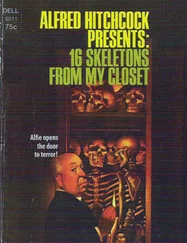Even this minor moment of pathos was inflected with politics. Kallman had done his level best over the years to seduce the entire rank-and-file of the Hellenic armed forces and had once been threatened with arrest and deportation by a certain Brigadier Tsoumbas. (“ Soom -bass”: I can still hear his knell-like pronunciation of the dreaded name.) The recent swerve from the extreme right to the even more extreme fascist right was threatening to bring the vile Tsoumbas into high office, and Chester was apprehensive and querulous, with his own safety naturally enough uppermost in mind.
I was going through all of these motions while I awaited a bureaucratic verdict of which I was already fairly sure. My mother had not been murdered. She had, with her lover, contracted a pact of suicide. She took an overdose of sleeping pills, perhaps washed down with a mouthful or two of alcohol, while he—whose need to die must have been very great—took an overdose with booze also and, to make assurance doubly sure, slashed himself in a hot bath. I shall never be sure what depth of misery had made this outcome seem to her the sole recourse: on the hotel’s switchboard record were several attempted calls to my number in London which the operator had failed to connect. Who knows what might have changed if Yvonne could have heard my voice even in her extremity? I might have said something to cheer or even tease her: something to set against her despair and perhaps give her a momentary purchase against the death wish.
A second-to-last piece of wretchedness almost completes this episode. Whenever I hear the dull word “closure,” I am made to realize that I, at least, will never achieve it. This is because the Athens police made me look at a photograph of Yvonne as she had been discovered. I will tell you nothing about this except that the scene was decent and peaceful but that she was off the bed and on the floor, and that the bedside telephone had been dislodged from its cradle. It’s impossible to “read” this bit of forensics with certainty, but I shall always have to wonder if she had briefly regained consciousness, or perhaps even belatedly regretted her choice, and tried at the very last to stay alive.
At all events, this is how it ends. I am eventually escorted to the hotel suite where it had all happened. The two bodies had had to be removed, and their coffins sealed, before I could get there. This was for the dismally sordid reason that the dead couple had taken a while to be discovered. The pain of this is so piercing and exquisite, and the scenery of the two rooms so nasty and so tawdry, that I hide my tears and my nausea by pretending to seek some air at the window. And there, for the first time, I receive a shattering, full-on view of the Acropolis. For a moment, and like the Berlin Wall and other celebrated vistas when glimpsed for the first time, it almost resembles some remembered postcard of itself. But then it becomes utterly authentic and unique. That temple really must be the Parthenon, and almost near enough to stretch out and touch. The room behind me is full of death and darkness and depression, but suddenly here again and fully present is the flash and dazzle and brilliance of the green, blue, and white of the life-giving Mediterranean air and light that lent me my first hope and confidence. I only wish I could have been clutching my mother’s hand for this, too.
Yvonne, then, was the exotic and the sunlit when I could easily have had a boyhood of stern and dutiful English gray. She was the cream in the coffee, the gin in the Campari, the offer of wine or champagne instead of beer, the laugh in the face of bores and purse-mouths and skinflints, the insurance against bigots and prudes. Her defeat and despair were also mine for a long time, but I have reason to know that she wanted me to withstand the woe, and when I once heard myself telling someone that she had allowed me “a second identity” I quickly checked myself and thought, no, perhaps with luck she had represented my first and truest one.
A Coda on the Question of Self-slaughter
I have intermittently sunk myself, over the course of the past four decades or so, into dismal attempts to imagine or think or “feel” myself into my mother’s state of mind as she decided that the remainder of her life would simply not be worth living. There is a considerable literature on the subject, which I have made an effort to scrutinize, but all of it has seemed to me too portentous and general and sociological to be of much help. Suicide-writing in our time, moreover, has mainly been produced long after the act itself ceased to be regarded as ipso facto immoral or as deserving an extra round of postmortem pain and punishment in the afterlife. I was myself rather astounded, when dealing with the Anglican chaplain at the Protestant cemetery in Athens (which was the only resting place consistent with her wishes), to find that this epoch had not quite ended. The sheep-faced Reverend didn’t really want to perform his office at all. He muttered a bit about the difficulty of suicides being interred in consecrated ground, and he may have had something to say about my mother having been taken in adultery… At any rate I shoved some money in his direction and he became sulkily compliant as the priesthood generally does. It was fortunate for him, though, that I couldn’t feel any more dislike and contempt for him and for his sickly religion than I already did. If I had been a red-blooded Protestant of any conviction, he would soon enough have found out what a boot felt like when it was planted in his withered backside. (On my way out, through the surrounding Greek Orthodox precincts, I paused to place some red carnations on the huge pile of tribute that surmounted the grave of the great George Seferis, national poet of the Greeks and foe of all superstitions, whose 1971 funeral had been the occasion for a silent mass demonstration against the junta.)
To an extraordinary degree, modern suicide-writing takes its point of departure from the death of Sylvia Plath. When I myself first read The Bell Jar , the phrase of hers that most arrested me was the one with which she described her father’s hometown. Otto Plath had originated in Grabow, a dull spot in what used to be called “the Polish corridor.” His angst-infected daughter had described this place as “some manic-depressive hamlet in the black heart of Prussia.” Her poem “Daddy” must be the strictest verdict passed by a daughter on a male parent since the last reunion of the House of Atreus, with its especially unsettling opinion that, as a result of paternal ill-use: “Every woman loves a fascist… the boot in the face.” [2] The feminist school has often looked in a manner of marked disapproval at her husband, Ted Hughes. I find it difficult to imagine him actually maltreating Sylvia physically, but there’s no doubt that he could be quite stupendously wanting in sensitivity. I once went for some drinks with him at the apartment of my friend and editor Ben Sonnenberg, who was by then almost completely immobilized by multiple sclerosis. Hughes droned on for an agonizingly long time about the powers of a faith-healer in the (perhaps somewhat manic-depressive) Devonshire hamlet where he lived. This shaman, it seemed, was beyond praise for his ability with crippled people. On and on went the encomium. I could not meet Ben’s eye but from his wheelchair he eventually asked with commendable lightness: “How is he with sufferers from MS?” “Oh, not bad at all,” replied Hughes, before blithely resuming with an account of how this quack could cure disabled farm-animals as well.
My mother’s ancestors did in fact come from a small and ultimately rather distraught small town in German-Polish Prussia, and her father had given her mother a truly ghastly time before dematerializing in the fog of war, but Yvonne was not one of those who, having had ill done to her, did “ill in return.” She hoped, rather, that it would fall to her to shield others from such pain. I myself don’t think, striking though the image may be, that an entire “hamlet” can be manic-depressive. However, I can forgive la Plath her possibly subconscious metaphor because most of what I know about manic depression I first learned from Hamlet .
Читать дальше











